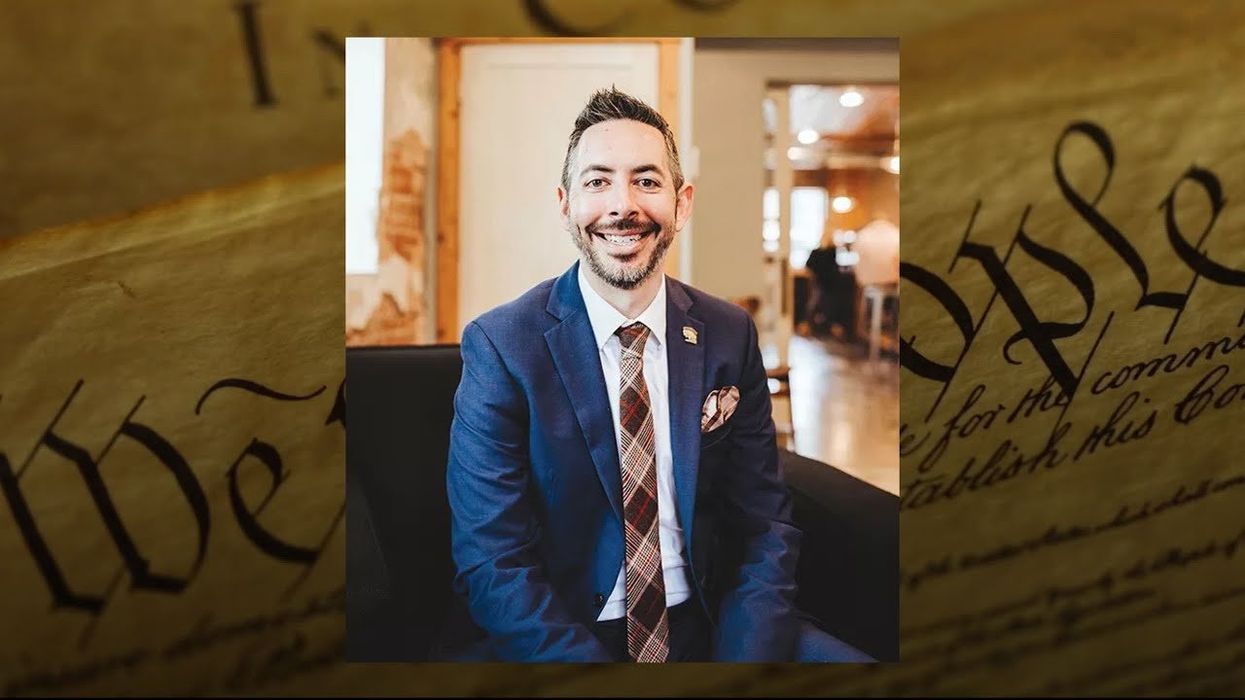The Fulcrum presents The Path Forward: Defining the Democracy Reform Movement. Scott Warren's weekly interviews engage diverse thought leaders to elevate the conversation about building a thriving and healthy democratic republic that fulfills its potential as a national social and political game-changer. This series is the start of focused collaborations and dialogue led by The Bridge Alliance and The Fulcrum teams to help the movement find a path forward.
Andy Moore is the founder of Let’s Fix This, an Oklahoma-based civic engagement organization.
Andy is also the current Executive Director of the National Association of Nonpartisan Reformers (NANR), an organization focused on supporting the increasing ecosystem of electoral reform efforts.
Andy provided a needed and unique perspective, leading an organization focused on Oklahoma, a state often overlooked in pro-democracy conversations, and leading efforts focused on changing the rules of the electoral system writ large.
Electoral reform advocates have argued that the primary system itself is one of the biggest culprits of the political challenges that we currently face. A simplistic form of the argument is that to improve our democracy, it is not sufficient to change culture or behavior (for example, bridging work) or even to educate citizens- entire structures need to be transformed.
With this in mind, donors have spent tens of millions of dollars in the last few years to advocate for measures that would change the electoral system, but this effort fell short in the recent election. Drastically short. In 2024, Arizona, Colorado, Idaho, Montana, Nevada, Oregon, and South Dakota held ballot referendums that would have changed party primaries- either replacing them with nonpartisan contests and/or creating a ranked-choice voting system. All of these referendums lost (a measure to repeal these nonpartisan primaries in Alaska barely failed).
Tens of millions were spent in these races, and almost all of them lost. NANR is an organization that aims to organize and represent organizations across the country focused on structural reform. I asked Andy for his thoughts on that movement and his perspective on the way forward.
His main reflections included:
- The structural reform movement moved too quickly: Andy notes that it is fairly young, having only really kicked off in the last 7-8 years. Despite its early stage, the movement pushed referendums in seven states, which Andy acknowledged was too many. Having the measures up for a vote was exciting but probably not strategically smart. Andy argues that the candidates on the ballot, combined with a lack of ability to engage in deep campaigning and outreach, contributed to their downfall. “Just having lots more conversations (would make a difference). So, if it was in another two years, like, if we ran those same campaigns in 2026, I think we'd have a very different outcome.”
- Funding might have skewed incentives: The structural reform argument cannot be divorced from the desires and incentives of funders. Many individual philanthropists and institutional foundations spent millions on these campaigns in 2024. Andy offers that these efforts might have been misguided. Additionally, and unfortunately, donor preferences might have pushed overall organizational strategies. Andy notes, “We all like to win but don't want to throw good money after bad.” Andy believes that the priority should be grassroots base building over broad campaigns, relating that “if you spent $10 million on South Dakota or Idaho, you could literally talk to every voter like 20 times, and really invest in building this base.”
- The messaging and messengers supporting structural reform need to change: In a moment in which voters of all ideological stripes are frustrated with institutional status-quo politics, it seems that a moment could exist for reform primaries. Simultaneously, voters are also recoiling from experts telling them what to believe, which is endemic to the structural reform movement. Andy says, “We have really smart people telling voters- here is the solution to your problems. Voters don’t like being talked to that way….You know, you’re a bunch of Havard and Yale-educated people. I’m sure you’re smart… but we don’t need that here.” The balance between providing structural primary reforms as a solution and authentically listening to voters is challenging but necessary.
Andy and his organization are engaging in local listening sessions, “talking to voters, listening, asking…what is going on with them and what their issues are and what solutions they see. Because it’s easy for us to come in and be like, “Oh, you got a problem. Here’s a solution." But people kind of want to solve their own problems, too.” There are important conversations ongoing in this sector about the feasibility and relative importance, especially from a monetary perspective, of the structural reform movement.
Andy’s perspective on not throwing the baby out with the bath water but slowing down and listening to people seems important to heed at the moment.
Executive Editor's Notes: We invite you to subscribe to the Fulcrum's YouTube channel, where you will find thought-provoking and engaging conversations about what matters most in protecting and nurturing democracy.
Look for Scott's next interview on Thursday, March 27.
Scott Warren is a fellow at the SNF Agora Institute at Johns Hopkins University. He is co-leading a trans-partisan effort to protect the basic parameters, rules, and institutions of the American republic. He is the co-founder of Generation Citizen, a national civics education organization.





















